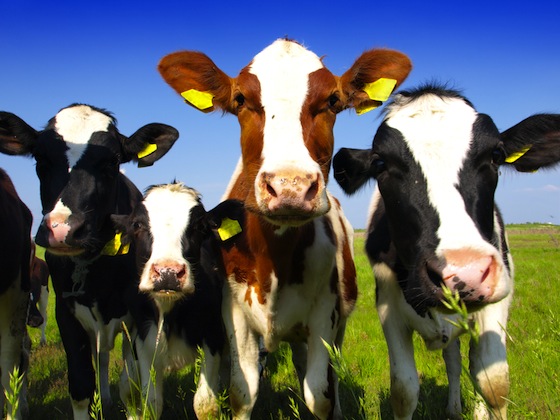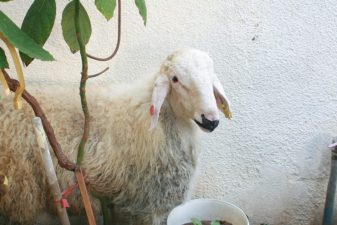 Thousands of animals have died and more are infected with a deadly strain of foot-and-mouth disease that has plowed through Egypt.
Thousands of animals have died and more are infected with a deadly strain of foot-and-mouth disease that has plowed through Egypt.
Despite government assurances that they were in control of Egypt’s foot-and-mouth disease (FMD), an outbreak has swept through the country, killing more than 10,000 animals to date. The UN Food and Agriculture Association (FAO) warns that 6.3 million buffalo and cattle and 7.5 million sheep and goats are at risk of contamination, and the General Authority for Veterinary Services claims that more than 60,000 animals have already contracted a new strain of the virus (SAT2) against which local livestock have no immunity.
Soaring prices
Although human beings aren’t typically at risk of contracting FMD, the outbreak has devastated the country’s livestock population and sent prices soaring.
Many local Egyptians unable to trust government have turned to other sources of protein and businesses meat are suffering serious losses.
Overwhelmed, Egypt appealed to the FAO to help stay the outbreak.
“We are working closely to support the government to bring the outbreak under control,” said Juan Lubroth, FAO’s Chief Veterinary Officer adding that “The area around the Lower Nile Delta appears to be severely affected, while other areas in Upper Egypt and the west appear less so.”
New vaccines
Egypt’s small stock of vaccines aren’t effective against the new strain, so Egypt needs regional help to import more vaccines.
“Even if they become available quickly, vaccines sometimes take up to two weeks to confer immunity,” according to a recent FAO press release. “FAO is urging coordination at all levels of government to implement biosecurity measures to limit the spread of the disease.”
In the meantime, livestock owners are urged to take the following measures to limit the spread.
- Limit animal movement and contact with animals from other farms
- Avoid purchasing new animals in the short term
- Properly dispose of infected carcasses by incineration or burying
Hayani Saad, chairman of a meat producers association, told Egypt Independent that he expects vaccines and warmer temperatures to deter the disease by early April.
Image credit: Calves on the field, Shutterstock
More on Disease Outbreaks in the Middle East:
Egypt Launches an Anti Bird Flu Campaign
Should Home Egg Farmers Vaccinate Against Avian Flu?
Egyptians Panic as Foot-and-Mouth Disease Sweeps Through the Country






Thanks for writing Dr. Minyoi. I hope the relevant authorities are reading this. All the best, Tafline
The FMD situation is very serious indeed and there is need for concerted effort in bringing the outbreak under control. Since it has been established that it is (SAT2?)isn’t it possible to try importing vaccine from from the Botswana Vaccine Institute since they produce the SAT2 vaccine and try this on a controlled basis to assess its efficacy in this particular outbreak?
This may be a long shot but it could be a move in the right direction.
“The disease is rarely fatal, but may kill very young animals. Those that survive are often debilitated and experience severe loss in milk or meat production.” (http://animalrangeextension.montana.edu/articles/beef/health/fmd.htm)
As I understand it, the disease does not kill the animals, people kill them in an effort to stop the spread of foot and mouth and to rid themselves of the animals who are now worthless to them.